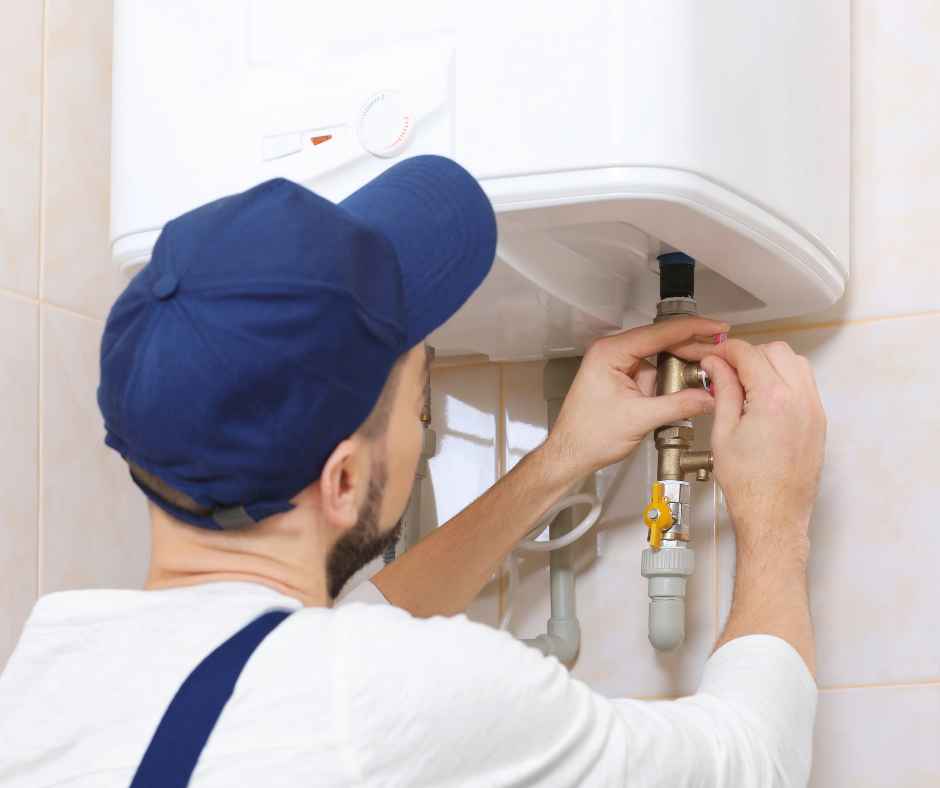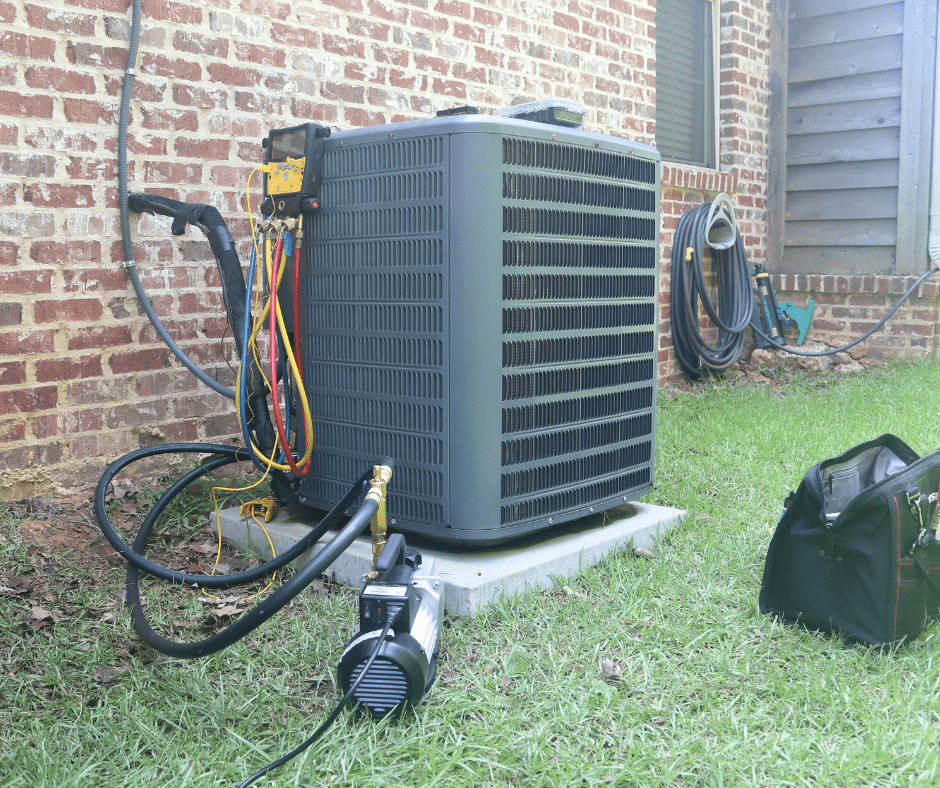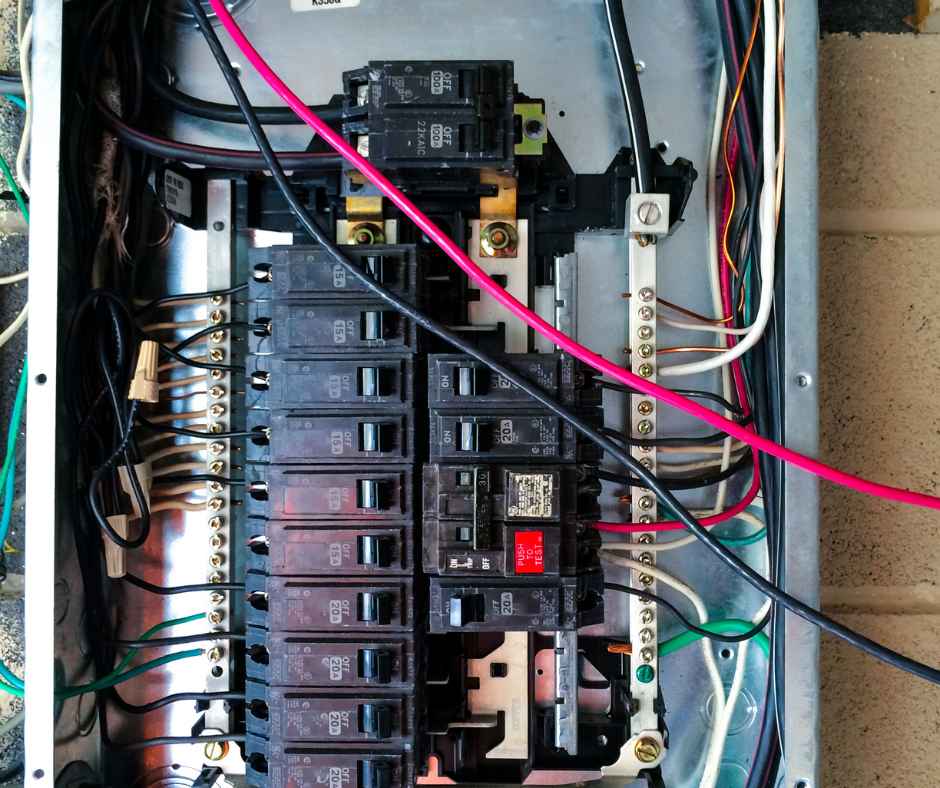Mega Furnace Tune Up FOR $99! BOOK NOW
How Hard Water in Metro Atlanta Shortens Water Heater Lifespan

If you live in Metro Atlanta, you may have noticed white spots on your faucets, cloudy dishes after washing, or soap scum that is hard to remove. These are all signs of hard water, a common issue across the region that does more than leave residue on surfaces. It can also quietly damage one of your home’s most important appliances: your water heater.
Hard water contains high levels of calcium and magnesium minerals. Over time, these minerals build up inside your water heater tank or on heating elements, forcing the system to work harder and reducing its efficiency. What starts as a small inconvenience can eventually shorten your water heater’s lifespan and lead to costly repairs or replacements.
In this blog, we will explain what hard water is, how it affects your water heater, the warning signs of damage, and how you can protect your system to ensure reliable hot water and better energy efficiency for years to come.
What Is Hard Water?
Hard water is water that contains high levels of dissolved minerals, primarily calcium and magnesium. These minerals enter the water supply as it flows through soil and rock formations. While hard water is safe to drink, it can cause significant problems for plumbing systems and water-based appliances over time.
Hard Water in Metro Atlanta
In Metro Atlanta, the water supply is naturally hard because it passes through mineral-rich sources before reaching your home. This means that every time you use hot water, a small amount of these minerals separates from the water and clings to the inside of your pipes and water heater.
Why It Matters for Your Home
- Mineral Buildup: Over time, these deposits harden into scale, reducing water flow and insulating heating elements from the water they are meant to heat.
- Reduced Efficiency: Your water heater has to work harder to maintain the same temperature, using more energy in the process.
- Shortened Appliance Lifespan: The more scale that forms, the greater the stress on your system, which can lead to corrosion, overheating, and early failure.
Understanding what hard water is and how it forms is the first step toward protecting your plumbing and water heater from unnecessary wear and tear.
How Hard Water Affects Your Water Heater
Hard water slowly damages your water heater from the inside. As mineral deposits build up, they create a thick layer of scale that reduces efficiency and shortens the unit’s lifespan. Whether you have a traditional tank or a tankless model, hard water can cause problems if it is not managed properly.
- Mineral Buildup on Heating Elements: When hard water is heated, calcium and magnesium separate from the water and attach to the heating elements. This buildup forces the system to work harder to heat water, which increases energy use and wear.
- Sediment Accumulation in the Tank: In standard tank-style water heaters, minerals and debris settle at the bottom. Over time, this creates a thick layer that traps heat and can damage the tank’s interior lining.
- Corrosion and Internal Pressure: Excess minerals corrode metal components like the anode rod and pressure relief valve. Corrosion leads to leaks, rust, and potential system failure.
- Reduced Efficiency: The more buildup that forms, the harder your water heater must work to produce hot water. This drives up energy costs and shortens its overall lifespan.
- Tankless Water Heater Issues: Hard water can coat the internal heating coils of a tankless system, restricting water flow and triggering overheating or shutdowns.
Hard water doesn’t cause sudden failure, but over time, the buildup it creates can significantly reduce performance and lead to costly repairs or replacements.
Signs Hard Water Is Damaging Your Water Heater
Hard water damage develops slowly, so it’s important to recognize the warning signs early. Paying attention to these symptoms can help you take action before the problem leads to costly repairs or replacement.
- Rumbling or Popping Sounds: Noise from your water heater means sediment or mineral buildup is trapping heat at the bottom of the tank.
- Discolored or Cloudy Water: Hard water minerals can cause hot water to look rusty, cloudy, or have a metallic taste.
- Reduced Hot Water Supply: A layer of scale inside the tank or on heating elements limits capacity and slows recovery time.
- Higher Energy Bills: As mineral buildup increases, your system must use more energy to heat the same amount of water.
- Visible Scale or White Residue: Chalky deposits around faucets, showerheads, or the tank itself indicate hard water buildup throughout your system.
- Frequent Repairs: If your water heater needs more maintenance than usual, hard water may be causing premature wear on internal parts.
If you notice one or more of these signs, your water heater may already be under stress from hard water buildup. Regular flushing and professional maintenance can help restore efficiency and prevent long-term damage.
How to Prevent Hard Water Damage
Preventing hard water damage is the key to keeping your water heater efficient and long-lasting. A few simple maintenance steps and professional solutions can make a big difference in how your system performs.
- Install a Water Softener: A water softener removes calcium and magnesium minerals from your water before they reach your water heater. This greatly reduces scale buildup and corrosion.
- Use a Whole-Home Filtration System: A filtration system can help improve water quality and reduce mineral levels throughout your home, protecting all plumbing fixtures and appliances.
- Flush the Water Heater Regularly: Draining and flushing the tank every 6 to 12 months removes sediment and prevents minerals from hardening inside the tank.
- Schedule Professional Maintenance: Have a licensed plumber inspect your water heater annually to check for buildup, corrosion, or worn components.
- Replace the Anode Rod as Needed: The anode rod attracts corrosive elements to protect the tank. Replacing it every few years helps prevent leaks and internal rusting.
- Consider a Descaling Service for Tankless Units: If you have a tankless system, a professional descaling treatment keeps the heat exchanger clean and maintains proper water flow.
These preventive measures not only extend your water heater’s lifespan but also improve performance, lower energy costs, and ensure a steady supply of hot water year-round.
Why Regular Maintenance Extends Lifespan
Routine water heater maintenance is one of the most effective ways to protect your system from hard water damage. Even if your home’s water is treated, minerals can still build up slowly over time. Professional service helps keep your system running efficiently and prevents unexpected breakdowns.
- Removes Sediment and Scale: Regular flushing clears out minerals before they harden into thick deposits that block heat transfer.
- Protects Internal Components: Inspections and part replacements, such as the anode rod, stop corrosion from spreading inside the tank.
- Improves Efficiency: A clean system heats water faster and uses less energy, helping you save on monthly utility costs.
- Prevents Costly Repairs: Catching small issues early prevents leaks, overheating, or pressure problems that can cause water damage.
- Extends Overall Lifespan: With proper maintenance, most water heaters can last years longer than systems left untreated.
Regular service ensures your water heater performs reliably and efficiently, even in Metro Atlanta’s hard water conditions. The experts at R.S. Andrews provide comprehensive inspections, flushing, and water treatment solutions to help you get the most out of your system.
Protect Your Water Heater and Your Home
Hard water is a common problem across Metro Atlanta, and while it may seem harmless, its long-term effects on your water heater can be costly. Mineral buildup, corrosion, and reduced efficiency all take a toll on your system, shortening its lifespan and raising your energy bills.
The good news is that regular maintenance and proper water treatment can prevent these problems before they start. Installing a water softener, flushing your system, and scheduling annual inspections help protect your investment and keep your water heater performing like new.
If you suspect hard water is affecting your plumbing or water heater, contact R.S. Andrews. Our experienced technicians can inspect your system, recommend effective solutions, and help you extend the life of your water heater. Schedule your professional water heater service today and keep your home running efficiently year-round.
Frequently Asked Questions About Hard Water and Water Heaters
How can I tell if I have hard water in my home?
You may notice chalky white spots on faucets or glassware, reduced water pressure, or stiff laundry after washing. A simple home test kit or professional water quality test can confirm hardness levels.
Does hard water only affect water heaters?
No. Hard water impacts your entire plumbing system, including pipes, dishwashers, washing machines, and showerheads. It causes buildup, reduces efficiency, and increases maintenance costs across all fixtures and appliances.
How often should I flush my water heater in Atlanta’s hard water conditions?
Most homeowners should flush their water heater every 6 to 12 months. If you notice popping sounds, cloudy water, or slow heating, more frequent flushing may be necessary.
Will a water softener really extend my water heater’s life?
Yes. Water softeners remove minerals that cause scale buildup, helping your water heater operate more efficiently and last longer. They also protect the rest of your plumbing system.
When should I replace a water heater damaged by hard water?
If your system is over 8 years old, produces inconsistent water temperature, or shows visible rust or leaks, replacement may be more cost-effective than repair. A professional plumber can assess the damage and recommend the best option.
Heater on the fritz? Frustrated with plumbing problems? R.S. Andrews is just a call away!





